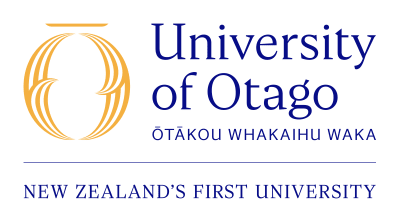
Master of Arts (Coursework) (MA(Coursework)) in Classics
Dunedin, New Zealand
DURATION
LANGUAGES
English
PACE
Full time
APPLICATION DEADLINE
Request application deadline
EARLIEST START DATE
Request earliest startdate
TUITION FEES
Request tuition fees

STUDY FORMAT
On-Campus
Introduction
Master of Arts (Coursework) (MA(Coursework)) in Classics
The Master of Arts (Coursework) program is designed to give students the skills sought-after by employers around the globe, with a balance of specific subject knowledge plus broad-based transferable skills – such as oral and written communication, and analytical skills.
The degree is also an possible qualification for the Doctor of Philosophy (PhD).
The MA(Coursework) normally requires either 12 months or three semesters of full-time, or equivalent part-time, study and entails completion of papers and a dissertation.
The dissertation is a major piece of supervised research of up to 20,000 words.
The primary aim of the MA(Coursework) is to provide candidates with a grounding in their chosen subject area within a wider disciplinary frame. The degree cultivates the skills needed to identify a significant topic, design and implement a significant piece of research, and present the findings in a form acceptable to an expert readership.
Admissions
Scholarships and Funding
Several scholarship options are available. Please check the university website for more information.
Curriculum
Research Dissertation
Two of:
- Writing and Revision for Graduate Research
- Research Methods in the Humanities
- Key Debates in the Humanities
And three 400-level CLAS papers
Program Outcome
Level of Award of the Degree
The degree may be awarded with distinction or with credit.
Program Tuition Fee
Career Opportunities
Arts degrees provide valuable generic skills in demand in the workplace. For some jobs you may well need further specialist training. However, there are plenty of employers who value the well-rounded education Classics provides. The millionaire financier Sir Robert Jones is fond of saying that he would far rather employ a Classics graduate than a Commerce one. Employers value transferable skills such as the ability to think through a problem, to see both sides of a question, to analyse, to present an argument, and to express yourself clearly and fluently.
Recent Classics graduates have made careers not only in school and university teaching but in university administration, foreign affairs, trade and industry, social welfare, local government, tourism, computing, insurance, law, librarianship, bookselling, publishing, museums and art galleries, fashion and design, broadcasting, journalism, tourism and the theatre. This list emphasises the versatility of Classics graduates.
Program delivery
Application details
Applicants must apply online. They should also attach all the necessary supporting documents which includes scanned copies of their previous official academic transcripts (awards gained, marks, grades) with their application, and provide proof of their identity: this is usually achieved by providing a certified copy of the personal details page of their passport or a birth certificate (in English). Applicants must also submit a detailed research proposal that shows they are familiar with current literature surrounding their topic; an up-to date curriculum vitae; and name of the academic staff member with whom they have been in contact; and with an approximate start date. They may also be required to submit an Educational Credential Evaluators report (ECE). As soon as applicants have completed their online application, their proof of identity document must be posted to International Office, University of Otago, PO Box 56, Dunedin 9054, New Zealand. International student applications for semester 1/summer school study close: Oct-31; Semester 2 study close: Apr-30.
